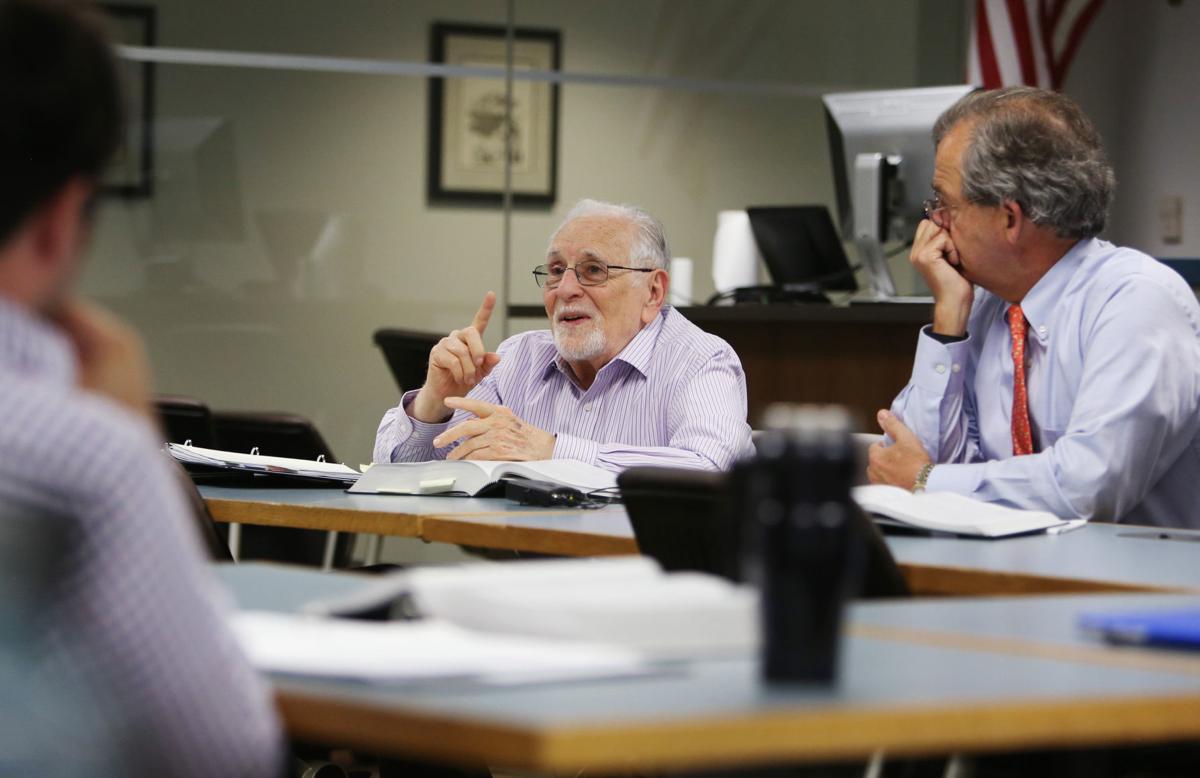Boris Kozolchyk has dedicated his life to the idea of empowering people through commerce and trade. His work has helped countries join the global economy and build the international relationships that undergird peace and prosperity.
Last week, a day before the Trump administration enacted tariffs on imported steel and aluminum from the European Union, Canada and Mexico, and brought the U.S. one step closer to an all out trade war, the center he founded in Tucson over 20 years ago was renamed the Kozolchyk National Law Center.
It was a great honor, the 83-year-old Kozolchyk said, at a time when the world order he helped build is threatened by growing nationalism and protectionism.
Founded in 1992 as the National Law Center for Inter-American Free Trade, the nonprofit research group has grown from its original American focus to include Eastern Europe, Asia and Africa. From its headquarters on North Bonita Avenue on Tucson’s west side, the center has been instrumental in improving everything from e-commerce to access to credit in developing countries.
Its mission to bring the world closer together through trade is out of step with the policies President Trump is intent on pursuing — policies that Kozolchyk chalks up less to an ideology than to one man’s ego. While Trump could get away with running his business that way, diplomacy and trade are not like a real estate deal.
“On an individual level, a selfish human being will always defeat the other; whoever is the most selfish wins. But collectively, those countries that cooperate are those who thrive,” he said.
Citing the work of Harvard biologist E. O. Wilson, he said species that collaborate are those that prosper. “Like bees cooperate, like ants cooperate, so do human beings, and trade is the highest form of cooperation — not a rapacious trade, but a fair trade that is just for both parties.”
Proponents of the president claim this is what Trump is after, fair trade after years of “bad deals” and other countries taking advantage of the United States. But while most deals can be improved, and China has long been an unfaithful competitor, the administration seems to have no coherent strategy other than to bully opponents and partners alike.
Using national security as an excuse to impose tariffs on steel and aluminum, a rationale that is laughable on its face, to punish North American and European allies makes no sense. These are all countries that can be worked with through traditional means and which, ironically, help guarantee our national security through their cooperation with intelligence and military operations.
This administration’s petty posturing on trade makes us less safe in the long run and more than likely will cost more jobs than it will ever “protect.” The EU has already announced it will impose counter tariffs of $3.3 billion, Canada and Mexico are set to retaliate starting July 1 with tariffs totaling $12.8 billion and $4 billion, respectively.
The president seems to have a limited understanding of the complexity of international commerce and the interconnected nature of the world economy. Instead of seeing that trade can provide a win-win for all parties, Trump believes that for every winner there must be a loser. In his first foray into tariffs, he may have proven himself right, although not in the way he intended, as the U.S. steel and aluminum industries begin to pick up steam, other U.S. manufacturers that depend on these imported materials are struggling. So, that’s winning?
World leaders have — for now — acted thoughtfully, giving Trump room to act out while keeping any real damage at a minimum. But if he keeps pushing, what happens when it does become about winners and losers? If a trade war breaks out, and it becomes about pride, what country would want to see the bully rewarded for his actions?
All this chaos has already produced a winner anyway, and that is China, Kozolchyk said. Beijing advances every time the U.S. draws back — every time we slap our allies in the face with some ridiculous demand.
“The United States has been the financial and commercial center of the world,” he said. “But now these people are throwing it all away.”





